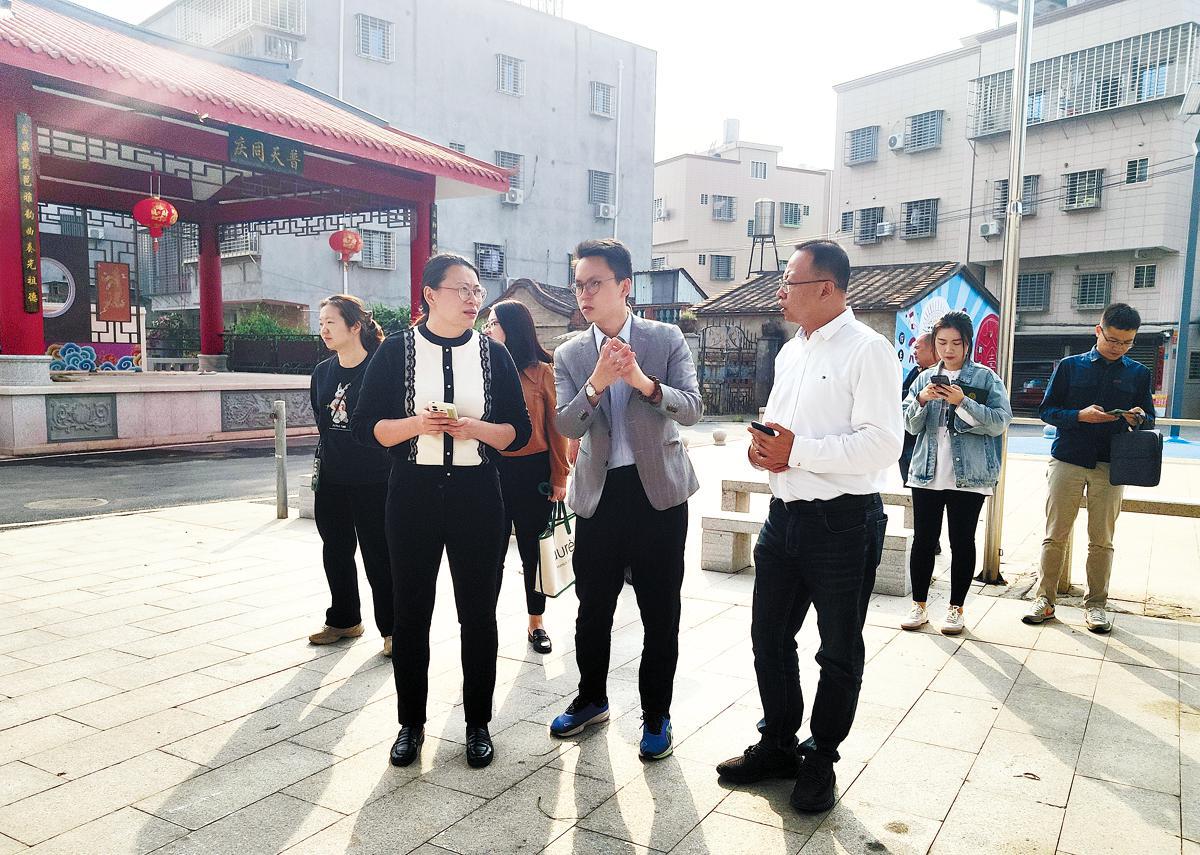Entrepreneur promotes cross-Strait ties
China Daily, November 12, 2024 Adjust font size:

Lin Wun-hau, a young entrepreneur from Taiwan, is working in a town in Xiamen, Fujian province, exploring rural development and envisioning a hub where young professionals can come together, share ideas and work on projects that bridge the gap across the Taiwan Strait.
In Neicuo, a small town in Xiamen, a new project aims to enhance cross-Strait collaboration by integrating Taiwan's community-building practices into local rural development, creating a platform for young Taiwan people to thrive on the mainland.
Lin, 27, hails from Zuoying military dependents' village in Kaohsiung, Taiwan, a home to the families of Kuomintang soldiers and their families who relocated to Taiwan in the 1940s and 1950s, with many veterans coming from various mainland provinces, including Lin's grandfather from Hunan province.
"The soldiers love watching TV programs about the mainland reporting on the people, things and customs of their hometowns," Lin said.
"They experienced the war of resistance against Japan, and the knowledge they shared with me goes beyond what is written in history books."
Growing up in this environment, Lin was immersed in a wealth of stories shared by veterans, which helped shape his broad perspective of the mainland. From a young age, he became deeply interested in the mainland. His academic background further equipped him with insights into the other side of the Strait.
From 2016 to 2020, while studying at Jinmen University, located on Jinmen Island near the coast of Fujian, he participated in cross-Strait exchanges, and visited cities in Fujian that share close ties with Taiwan.
In 2020, he enrolled in the Graduate Institute of East Asian Studies at Chengchi University in Taiwan, focusing on cross-Strait relations, particularly on how to build a living circle between Jinmen and Xiamen in Fujian. His graduation thesis focused on policies of building a bridge between the two, and sending gas and electricity from Fujian to the island.
Learning that Neicuo provides opportunities for young people from both sides to start up businesses together in rural areas, he became the first Taiwan young person to work in the town and established a cultural tour company in March.
"During the era of cross-Strait confrontation, this area represented a front line of conflict, but now it serves as a pioneer zone for peaceful exchanges. The close connections in terms of people and logistics have always existed, paving the way for cooperation," he said.
Young teams from both sides of the Strait collaborate to explore and delve into the local folk culture, deriving and developing cultural and creative products.
"We needed a medium to present local characteristics, something tangible that people can connect with," Lin said.
He introduced a young team of craft brewers from Jinmen, renowned for its liquor, to work with local brewers in Xiamen to launch a craft beer brand for the town, creating the first cultural product of its kind in the area.
Lin and his team have also been addressing agricultural challenges in the region. Collaborating with Taiwan agricultural experts, he has initiated efforts to revitalize abandoned farmland through sustainable practices.
Lin has found that cross-Strait exchanges are happening in everyday life. In Xiamen, he often seeks advice from his elders speaking the southern Fujian dialect, which is also spoken in Taiwan, making it the most intimate and natural connection between them.
The recent reopening of travel between Fujian and Jinmen has provided new opportunities for collaboration.
Lin plans to develop repurposed factories into living and working spaces to provide housing and offices for young professionals.
He said he hopes to attract more young people to participate in the community development process, making the community a new home jointly built by people from both sides of the Strait.